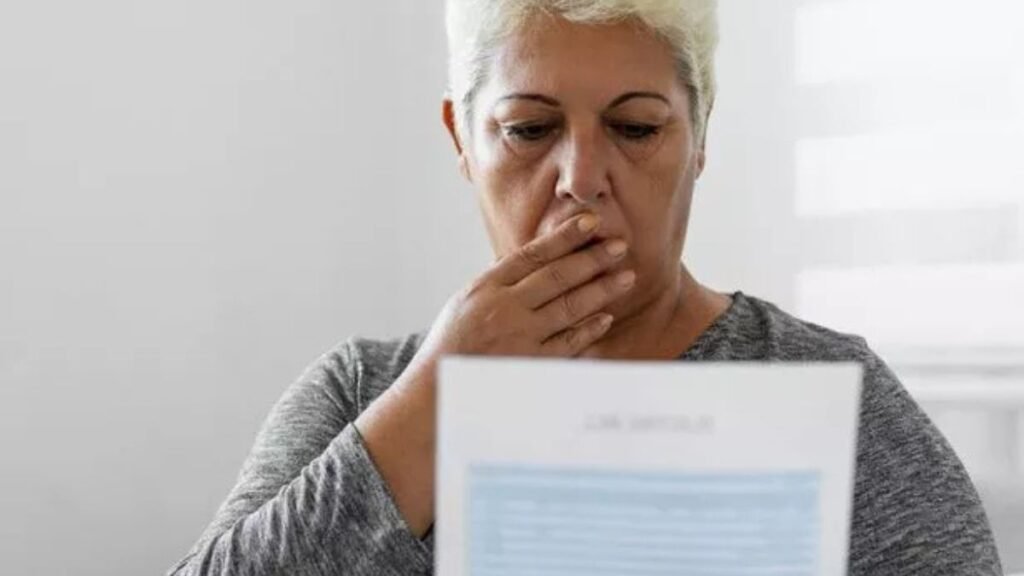The UK government has DWP recently announced a major shake-up to the Personal Independence Payment (PIP) system. These reforms, expected to take full effect by November 2026, could affect the financial wellbeing of more than 1.2 million people across the country. If you currently receive PIP or plan to apply in the future, these changes are something you can’t afford to ignore.
Let’s break it down step-by-step to understand what’s changing, why it’s happening, and most importantly, how you can prepare to protect your income and support.
What is PIP and Why Does It Matter?
Personal Independence Payment (PIP) is a benefit designed to help people aged 16 and over who live with long-term health conditions or disabilities. It’s meant to help cover the extra costs of living with these challenges, whether they affect your daily life, your mobility, or both. Unlike other benefits, PIP is non-means-tested, meaning your income or savings don’t affect your eligibility.
PIP replaced the old Disability Living Allowance (DLA) in 2013 and currently supports over 3.3 million people in the UK. It has become a crucial source of financial support for many individuals dealing with physical disabilities, long-term illnesses, or mental health conditions.
But as the number of people claiming PIP has risen sharply in recent years — especially for conditions like anxiety, depression, and ADHD — the government has decided to tighten the rules to control rising costs and better target support.
What Exactly is Changing in the PIP Rules?

Currently, PIP applicants need to score at least eight points across a range of daily living activities to qualify for the standard rate. These activities can include things like preparing food, managing medication, communicating with others, dressing, and engaging with people.
However, starting in November 2026, there will be a significant shift in how these points are counted:
New Requirement: You must score at least four points in one single daily living activity. In other words, you can no longer spread points across multiple activities to qualify. If your needs are more moderate and spread out across various areas, you may no longer qualify.
Mobility Component: No changes have been proposed to the mobility component for now, so the rules related to getting around remain the same.
Let’s take a closer look at this change with a practical example.
Example: Emily’s Story
Emily, a 28-year-old woman living with ADHD and anxiety, currently receives PIP. Under today’s rules, she qualifies by scoring points in several areas:
- 2 points for needing prompting to cook safely
- 2 points for help managing her medication
- 2 points for needing support to engage with others
- 2 points for prompting to dress appropriately
Her total is 8 points, which makes her eligible for the standard rate of the daily living component.
But under the new rules, since she doesn’t score at least 4 points in any one activity, she might lose her eligibility completely. This means that even though her condition affects many parts of her life, the new system might not recognize her needs as severe enough in any single area.
Why Is the Government Making These Changes?
The Department for Work and Pensions (DWP) argues that the current system is too generous and financially unsustainable. They point to several goals behind the proposed reforms:
- Focus support on people with the most severe needs
- Reduce the number of people getting low-level assistance
- Encourage more people back into employment
- Tackle rising fraud and misuse of the benefit
- Save an estimated £5 billion annually by 2030
They also believe that the growing number of claims related to mental health conditions like anxiety, depression, and ADHD suggests the system may need tightening to focus on the most critical cases.
Who Is Likely to Be Affected the Most?
The new rules are expected to affect more than 1.2 million people, especially those whose needs are distributed across multiple areas but who do not have one dominant challenge.
Groups most at risk include:
- People with mental health conditions such as anxiety, PTSD, or depression
- Individuals with neurodivergent conditions like ADHD or autism
- Those with a combination of mild-to-moderate challenges in different daily activities
If you’re currently on the standard daily living rate and your support is based on spread-out points, your PIP award could be in danger once the new system is implemented.
How Much Money Could People Lose?
Losing a PIP award isn’t just about losing a few pounds each week. The financial impact could be serious:
- Claimants could lose between £4,200 and £6,300 per year
- That’s nearly £500 a month for some people
At a time when living costs are still high, and inflation is squeezing household budgets, this could push vulnerable individuals into crisis.
What Does the Government Say in Its Defense?
The DWP says that these changes are part of a broader strategy to reform welfare. This includes pushing more people into the workforce and reducing dependency on benefits.
Other linked policies include:
- Tightening Universal Credit rules
- Changing how Work Capability Assessments are carried out
- Offering more personalised support through local Job Centres
Essentially, the government wants to create a system where only the most significantly disabled people get long-term financial assistance, while others are encouraged (or pushed) to return to work.
How Are Charities and Experts Reacting?
Many disability rights organisations and mental health charities are raising serious concerns. Groups like Scope, Mind, and Disability Rights UK have warned that this reform could lead to a massive loss of income and support for people who need it.
James Taylor from Scope called it “a major cut to lifeline support” rather than a simple reform. Experts at the Institute for Fiscal Studies have also noted that cutting PIP support now could lead to higher costs in other areas, like the NHS, social care, and housing benefits.
How to Prepare if You Receive or Plan to Apply for PIP

The reforms are still more than a year away, but preparation is key. Here’s what you can do:
1. Understand the New Criteria Start by reading the Green Paper and the DWP’s proposed assessment changes. Pay close attention to how each activity is scored and where your condition might fall under the new model.
2. Gather Strong Medical Evidence Begin collecting letters and documentation from your GP, consultants, therapists, or social workers. The more detailed evidence you have about how your condition affects your daily life, the stronger your case will be.
3. Seek Professional Advice Organisations like Citizens Advice, Scope, and Turn2Us offer free guidance. Speaking with a trained welfare advisor can help you better understand how these changes might apply to you personally.
4. Check Your Reassessment Date These new rules won’t apply until your next scheduled PIP reassessment after November 2026. So if your award is due to be reviewed in late 2026 or 2027, use this time wisely to prepare.
Final Thoughts
While change is coming, knowledge and preparation can help you stay in control. Whether it’s reassessing your eligibility, gathering stronger medical documentation, or speaking with a support organisation, there are steps you can take now to safeguard your future.
The more proactive you are, the better positioned you’ll be to respond effectively when the new rules take effect. PIP remains a vital support system for millions, but these reforms may redefine who receives it and how.
FAQs
1. What is PIP and why is it important?
Personal Independence Payment (PIP) is a UK government benefit that helps people aged 16 and over with the extra costs of long-term disabilities or health conditions. It’s not means-tested, so it’s available regardless of income or savings. Over 3.3 million people currently depend on PIP.
2. What changes are being made to PIP by the DWP?
Starting in November 2026, the Department for Work and Pensions (DWP) will change how PIP eligibility is assessed. Under the new rules, claimants will need to score at least four points in one single daily living activity, instead of spreading points across multiple tasks to qualify.
3. Will the mobility component of PIP be affected?
No. For now, the mobility rules will remain unchanged. The reform only applies to the daily living component.
4. How much financial loss could claimants face?
Claimants who lose PIP could see their income drop by £4,200 to £6,300 per year — that’s nearly £350 to £500 a month, a significant blow especially amid rising living costs.
5. Are these changes confirmed, and when will they apply?
Yes, the changes are part of the government’s official welfare reform plan. They will come into effect from November 2026 and will apply after your next scheduled reassessment.








